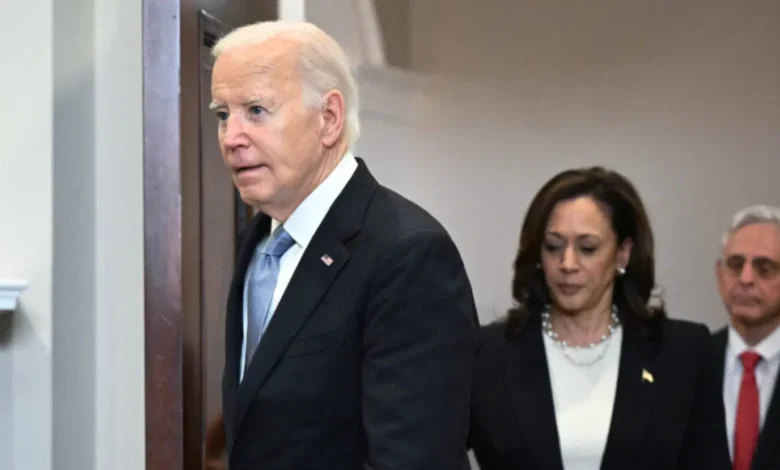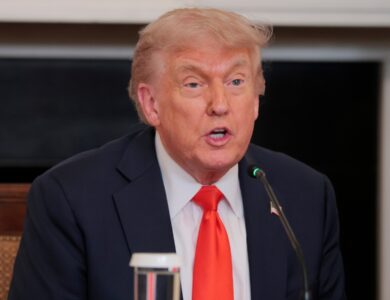White House Emails Cast Doubt That Biden Was Aware of Autopen Pardons

Internal White House emails reveal concern among aides and Justice Department officials about former President Joe Biden’s sweeping clemency grants in his final days in office, including uncertainty over whether Biden personally reviewed or approved the specific documents authorizing thousands of pardons and commutations.
The messages, obtained by The Post, show that Biden orally approved a plan on Jan. 11, 2025, to commute sentences for inmates serving time on crack cocaine charges. But three warrant documents listing roughly 2,500 recipients were not signed — by autopen — until the morning of Jan. 17, just three days before he left office.
On the evening of Jan. 16, then-White House Staff Secretary Stef Feldman told colleagues she needed confirmation that Biden had consented before she would authorize his autopen signature.
“I’m going to need email … confirming P[resident] signs off on the specific documents when they are ready,” Feldman wrote at 9:16 p.m.
Deputy White House counsel Tyeesha Dixon forwarded Feldman’s message to Michael Posada, chief of staff to the counsel’s office.
“Michael, thoughts on how to handle this? He doesn’t review the warrants,” she wrote.
Posada responded: “We will just need something … making clear that the documents accurately reflect his decision.”
The mass clemency was announced hours later, at 4:59 a.m. on Jan. 17.
🚨 BREAKING: Biden White House emails seem to confirm Joe Biden himself did NOT review pardons before they were sent to the auto pen
— Nick Sortor (@nicksortor) September 4, 2025
This scandal just got MUCH bigger!
A top Biden White House aide emailed colleagues saying “[Biden] doesn’t review the warrants,” and was… pic.twitter.com/cE9Oje7y0P
Aides pointed to an earlier attestation from deputy assistant Rosa Po, who wrote that Biden had told multiple officials on Jan. 11 that he wanted to commute sentences for those with “crack-powder sentencing disparities who were determined by DOJ not to have a high likelihood of recidivism.”
It remains unclear whether Biden personally reviewed the final warrant documents before autopen signatures were affixed. In public comments to the New York Times in July, Biden acknowledged the use of autopen, saying it was necessary “because there were a lot of them.”
The warrants grouped inmates into three categories: some who were released in February, others whose sentences were shortened, and a smaller group of 19 individuals who had sentences reduced to 350 months — nearly 30 years. The documents also included some violent offenders, including Russell McIntosh, convicted of a 1999 double murder in North Carolina.
Legal experts note that autopen carries full legal effect, but the warrants must reflect the president’s actual decisions. Emails show aides attempted to create a record verifying his intent.
Similar concerns had arisen a month earlier, in December 2024, when Biden commuted the sentences of 37 federal death row inmates to life without parole. Then-associate counsel Jared English told Dixon by email that before the autopen could be used, the staff secretary required an email confirming Biden’s verbal approval. Dixon suggested drafting the statement in the first person for White House Counsel Ed Siskel.
The Justice Department also raised concerns. On Jan. 17, DOJ official Elysa Wan emailed White House lawyers asking how to interpret warrant language that granted relief for “offenses described to the Department of Justice.” She wrote, “We do not know how to interpret” that phrasing.
Associate Deputy Attorney General Bradley Weinsheimer followed up the next day, saying the wording could mean “the commutations do not take effect” because no offenses had been described by the president. He requested “a statement of direction from the President” clarifying the language. It is unclear if the White House ever responded before Biden’s departure.
The questions surfaced as the White House was winding down operations. Reports at the time described Biden as working primarily between 10 a.m. and 4 p.m., but the clemency discussions and approvals occurred overnight.
Biden had previously used autopen in December 2024 to grant mercy to about 1,500 people released on home confinement during the pandemic, a process requiring only one signed document.
Congressional Republicans on the House Oversight Committee are now reviewing the clemency process and have requested additional records from the Justice Department.
A former Biden staffer told The Post after the emails were published: “President Biden made the decisions.” The person argued Republicans were applying a double standard compared with broad pardons issued under Trump.
So far, President Trump has not attempted to reverse Biden’s clemency actions but has criticized his predecessor’s reliance on autopen.
BREAKING
— Conservative Brief (@ConservBrief) September 4, 2025
President Trump declares former President Joe Biden’s autopen pardons VOID:
“All those pardons he gave to some very bad, unpatriotic and evil people, it looks to me like those pardons are worthless.” pic.twitter.com/KtM51QExW8





